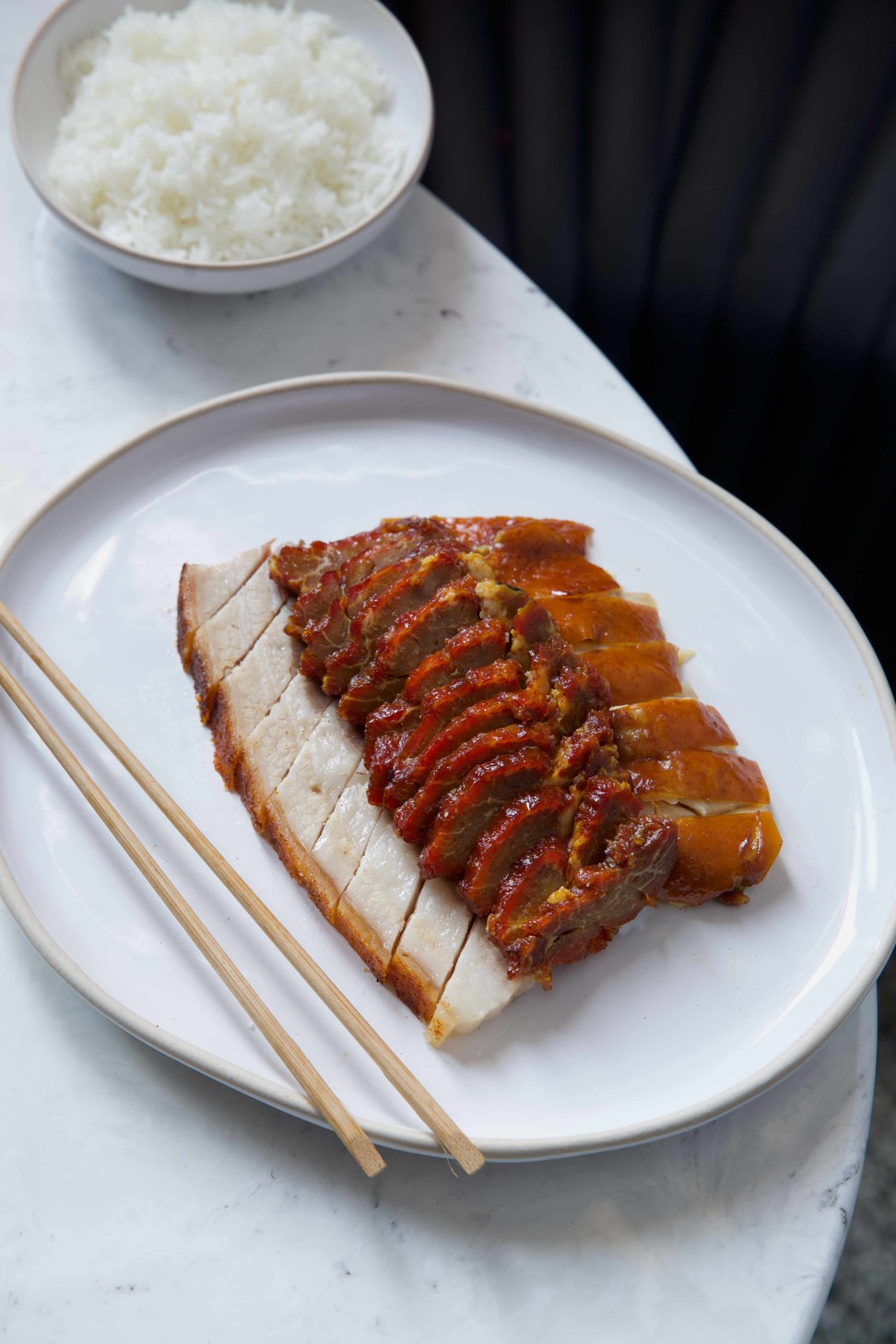
How London is falling for Chinese roast meats: duck, pork belly and char siu move beyond Chinatown
- Cantonese roast meats, known as siu mei, are gaining popularity in the British capital, and spreading from Chinatown
- We talk to restaurateurs and roasting masters about the complex techniques
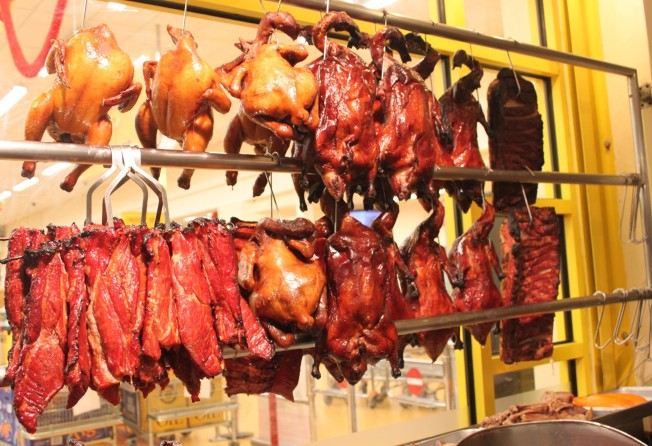
The art of siu mei – or Cantonese roast meats – is gaining momentum in London. Classic dishes such as roast duck, roast pork, crispy pork belly and slow-poached soy chicken are moving out of their spiritual home in Chinatown and spreading through the capital.
When the chief food critic at Bloomberg, Richard Vines, was invited to curate Bloomberg Arcade – a food and art space in London’s financial district, which opened in October 2018 – he was looking for something different and found it in some meaty, Asian favourites.
“I tried to decide what might make the arcade a destination, rather than just somewhere you visit to grab a salad or a sandwich,” says Vines.
“I have lived [at the Barbican] and worked [at Bloomberg] in the city for almost a quarter of a century, so I know how quiet it can be in the evenings and at weekends, and I have a personal and professional interest in trying to change that.”

Keen to avoid the city’s chain restaurants, he looked instead at chefs whose offerings he enjoyed. One of the first on his shortlist was Andrew Wong, of Michelin-starred A Wong in Victoria, southwest London.
“I was thinking that Andrew might open another A Wong, and I was impressed that he had no interest in replicating that successful restaurant. It’s interesting that he decided to focus on roast meats,” he says.
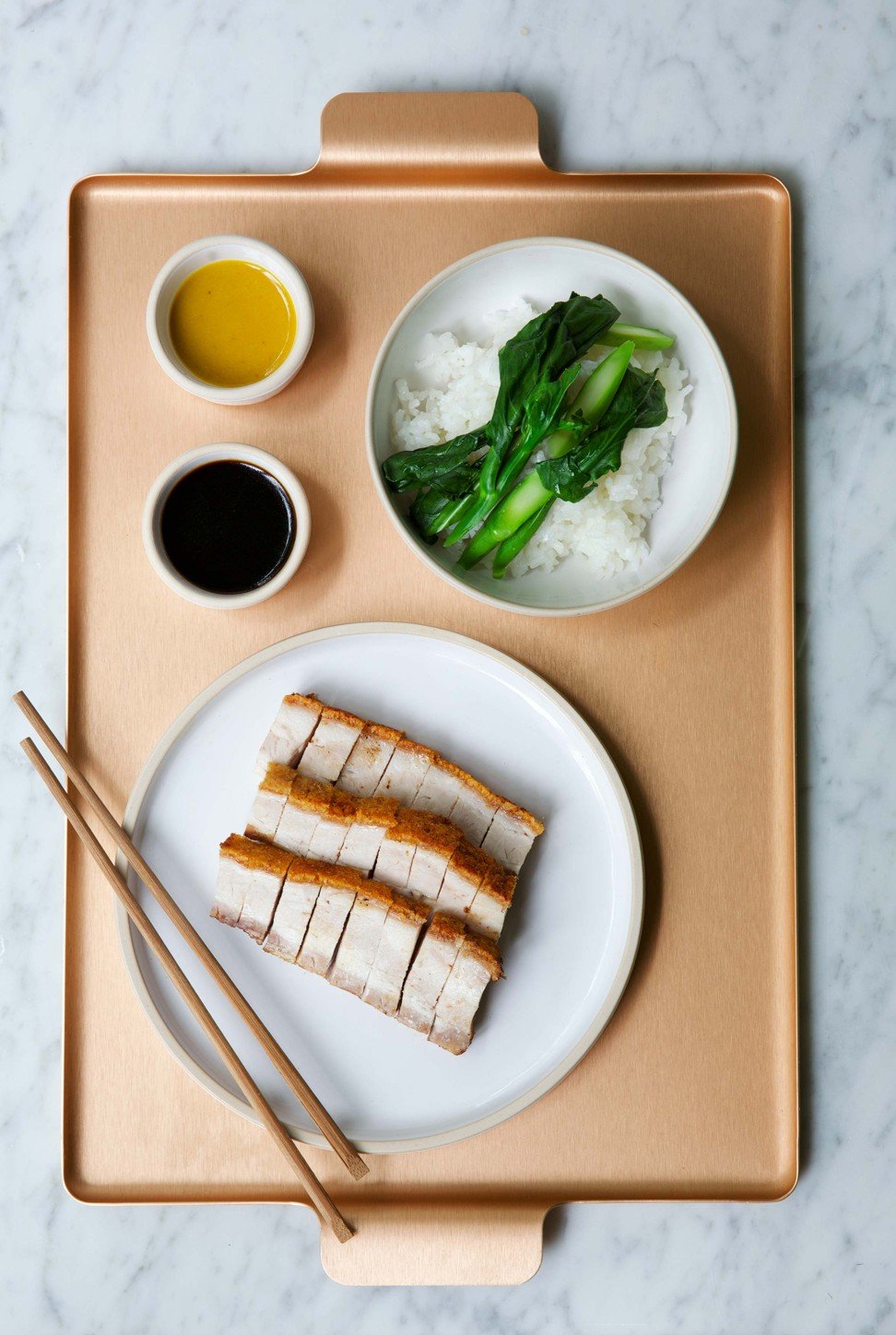
Wong opened Kym’s – a restaurant that serves Chinese classics and celebrates Cantonese roasting techniques.
“When I first went to China [for culinary training], roast meat fascinated me because it’s very technical, but the chefs never give the impression that it is technical. Roasting is one area which involves chemistry, but also requires tactile improvisation from the chef,” says Wong.
Yung Chen, a Cantonese roasting master, joined the team at Kym’s to oversee the roasting kitchen. Yung began his chef training in Kowloon, Hong Kong, before moving to Britain in 1994 and starting work in Chinatown restaurants, including prestigious roast duck destination Four Seasons.
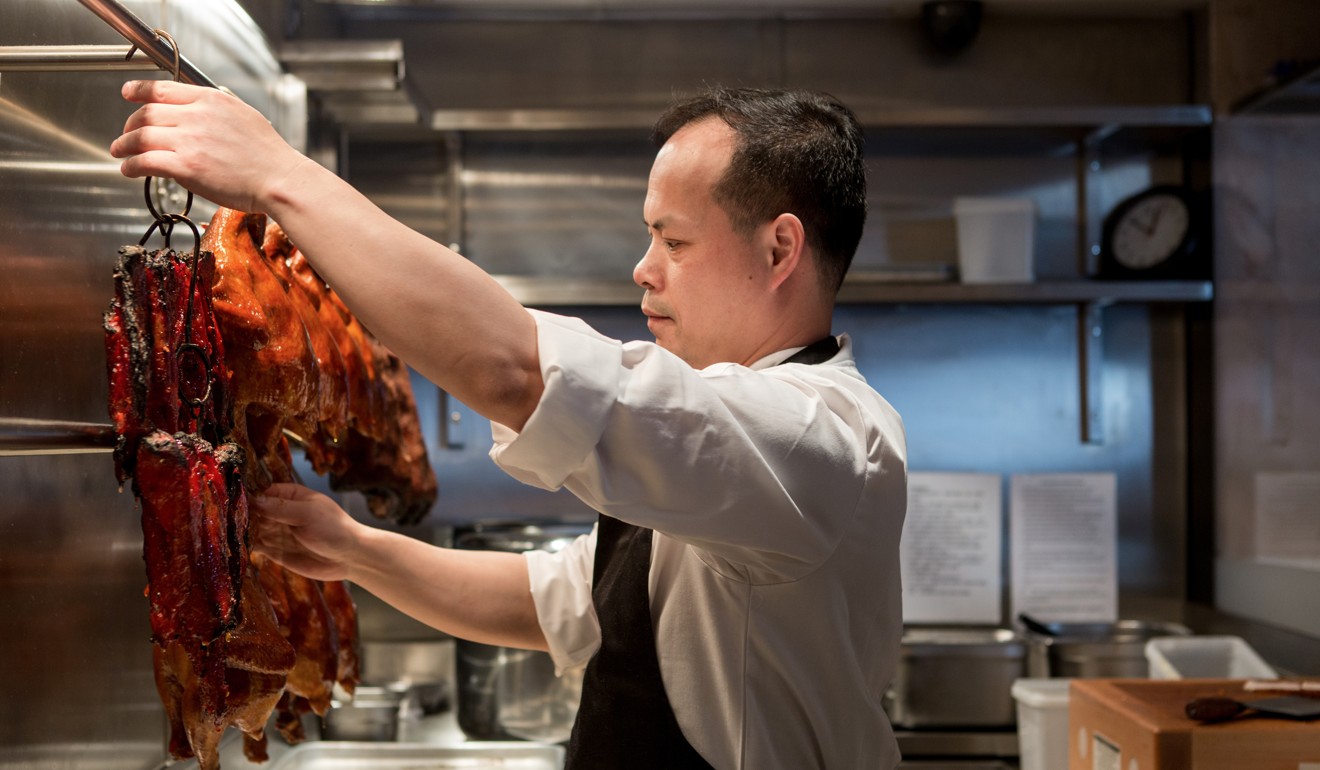
There are three branches of Four Seasons in Chinatown, and the Gerrard Street restaurant’s roast duck was described by the Financial Times as “the best in the world”.
More than 30 years working in kitchens has given Yung an understanding of the craft of roasting and the demands of his customers.
“People from the UK and people from Hong Kong want different products,” he says. “Chinese people have a larger desire for fat, so with the crispy pork belly, they are looking for a greater fat content. In the UK, on the other hand, fat is linked with being unhealthy.”
Still, Kym’s has been well received.
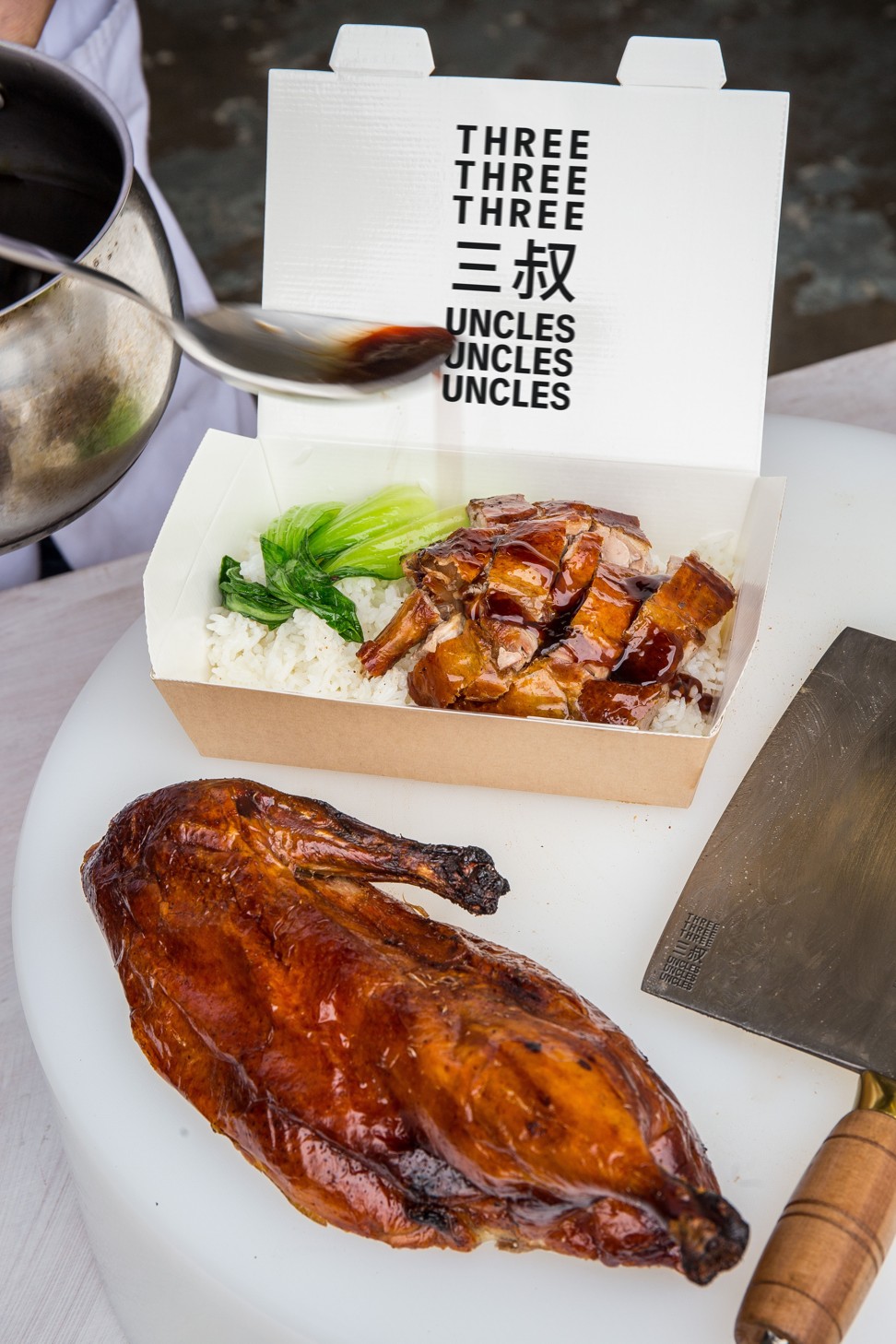
Now three childhood friends who grew up together in Hong Kong before training as chefs are planning to introduce Cantonese roast meats to Liverpool Street in east London.
Known as the Three Uncles, Cheong Yew (Uncle Lim), Put Sing Tsang (Uncle Sidney) and Mo Kwok (Uncle Mo) will specialise in Cantonese roast duck, crispy pork belly and char siu (barbecued pork).
“It is the food we grew up eating in shops around Wan Chai and know very well,” says Kwok. “We also want to take siu mei to a wider audience outside Chinatown.”
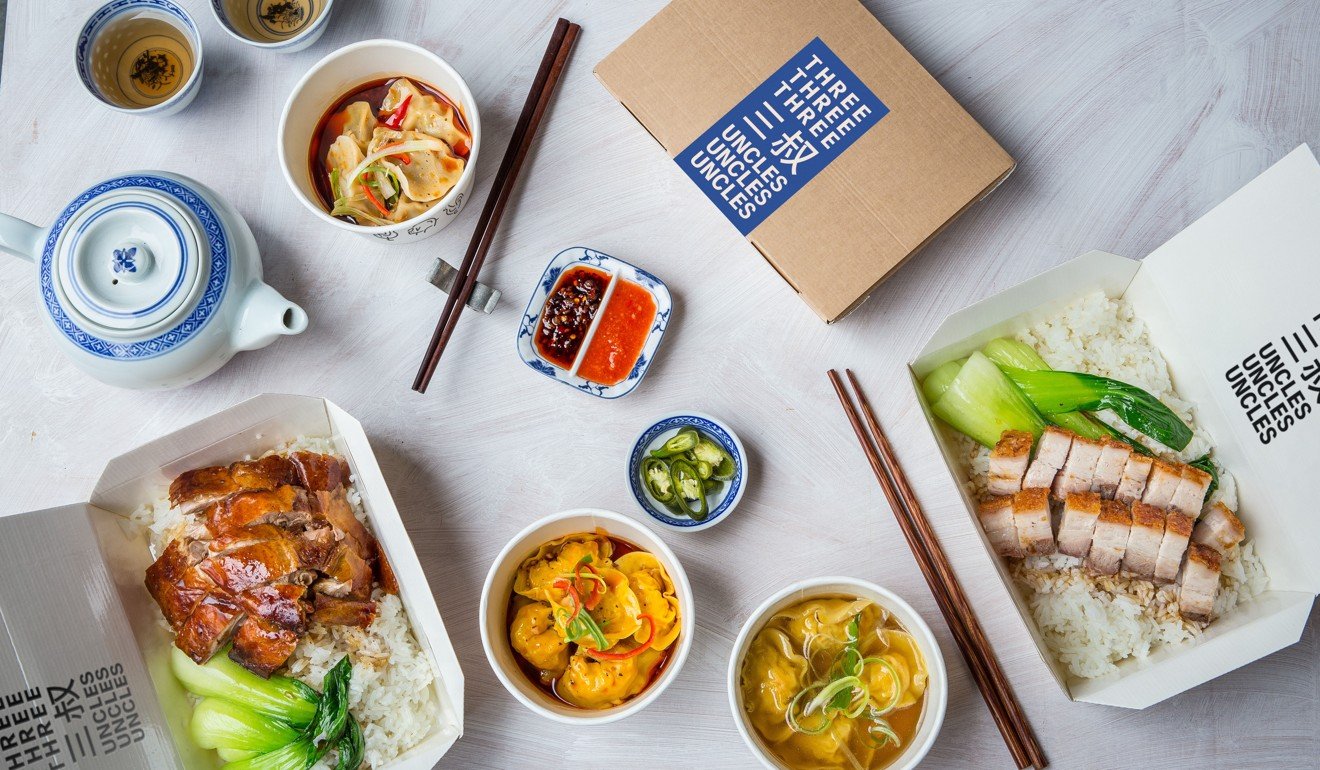
They have imported a roasting oven from Hong Kong – which they will place in the centre of their restaurant because they want to show Londoners the level of skill required for Cantonese roast meats.
“We’ve had techniques shared with us that have been passed down by Hong Kong roasting masters,” Tsang says. Their restaurant will open this summer.
On the outskirts of Cricklewood in northwest London, four Chinese roasting chefs keep up with the demands of an eclectic group of customers at The Reindeer cafe, a casual diner inside the Wing Yip Superstore, a large Chinese supermarket serving retail customers and Chinese restaurateurs.
This cafe comes highly recommended by Wong. “They serve some of the best soy chicken and suckling pig in the UK,” he says.
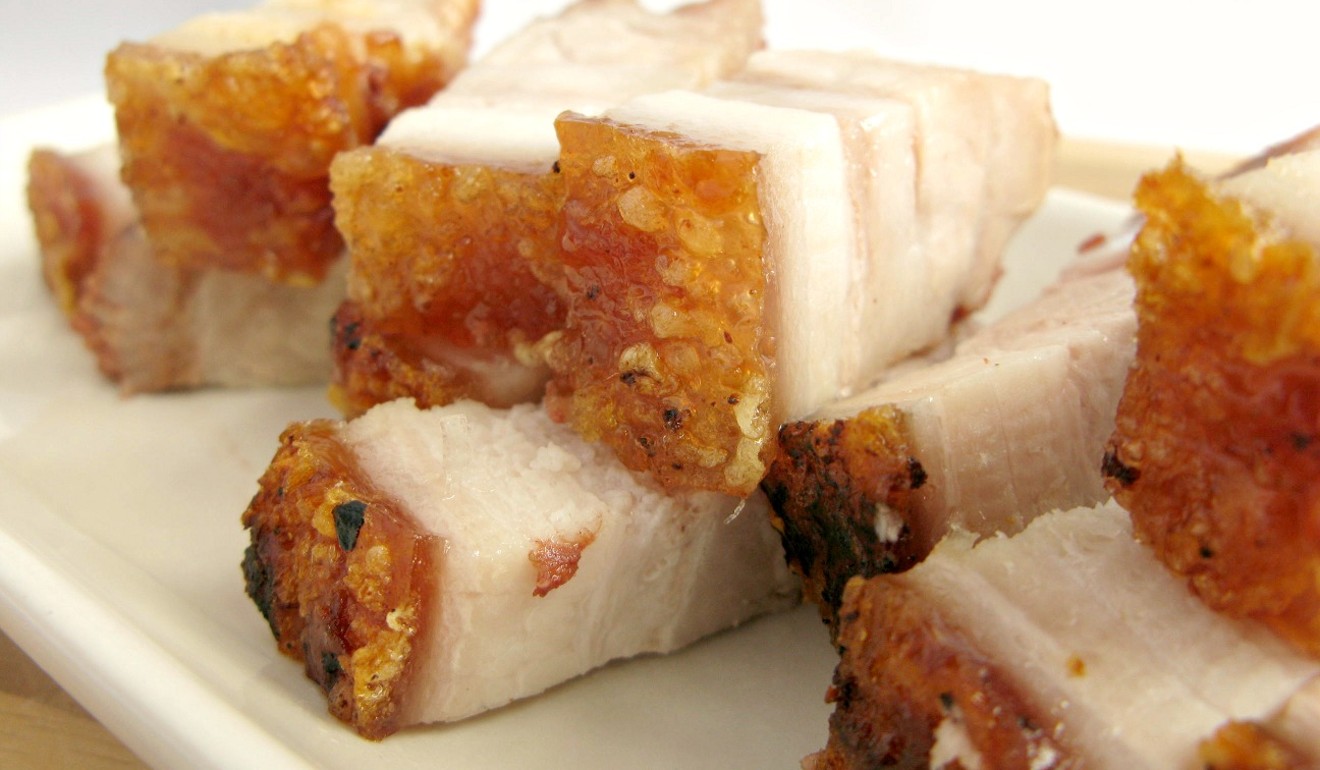
Reindeer Cafe is run by Sunny Lee. His father, Shun Lee, is a respected dim sum chef who ran the popular Harbour City Cantonese restaurant in Chinatown (which closed in 2015). The family still owns one place in Chinatown – New Loon Fung Restaurant. Ten years ago, they took on the space inside Wing Yip.
“I explain it [Reindeer Café] as a Chinese greasy spoon,” says Sunny Lee. “We have a kitchen serving Cantonese dishes. Then on the side we have a bakery and roasting station. We have a roasting shop front facing the supermarket and that [roast meat] is one of our big sellers.
“All three elements of the business work hand in hand. People come in for bo lo bao [pineapple buns] from the bakery and end up buying roast meat; others come to get stock for their Chinese restaurants and takeaways from the supermarket, then come in for a quick meal in the cafe. And on special occasions, people might order a roast dish – duck or piglet.”
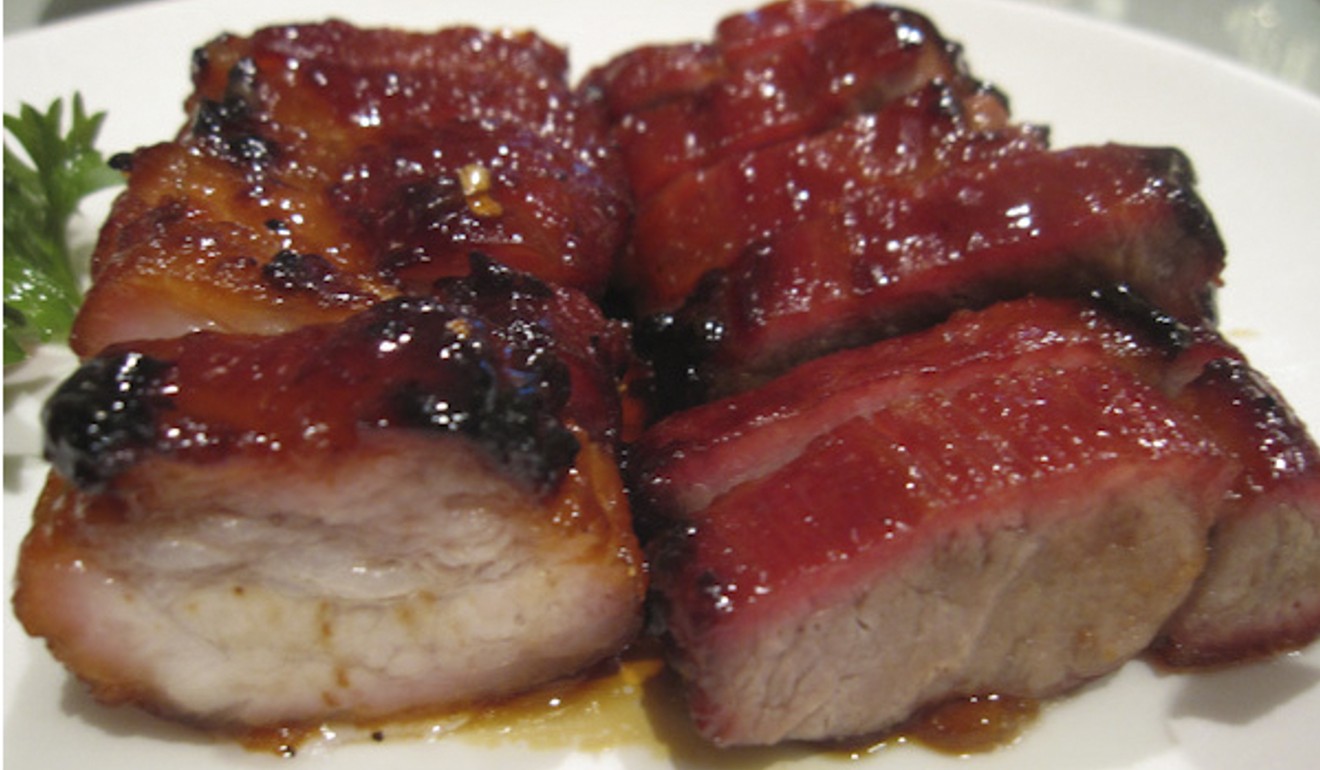
The suckling pigs, which Wong recommends, are popular with members of the local Filipino community too, who regularly place orders for birthdays, christenings and Christmas. At slower times of the year, Lee sells a couple of pigs a week.
His team of four roasting chefs is led by “Chef Keung” – who has worked alongside Lee since Reindeer Café opened 10 years ago. Originally from Hong Kong, Keung learned printing as a trade, but when he moved to London, found work in Chinese restaurants, where he learned to roast. He has become exceptional at the art.
“I poached Chef Keung from a local food hall when it closed temporarily,” says Lee.
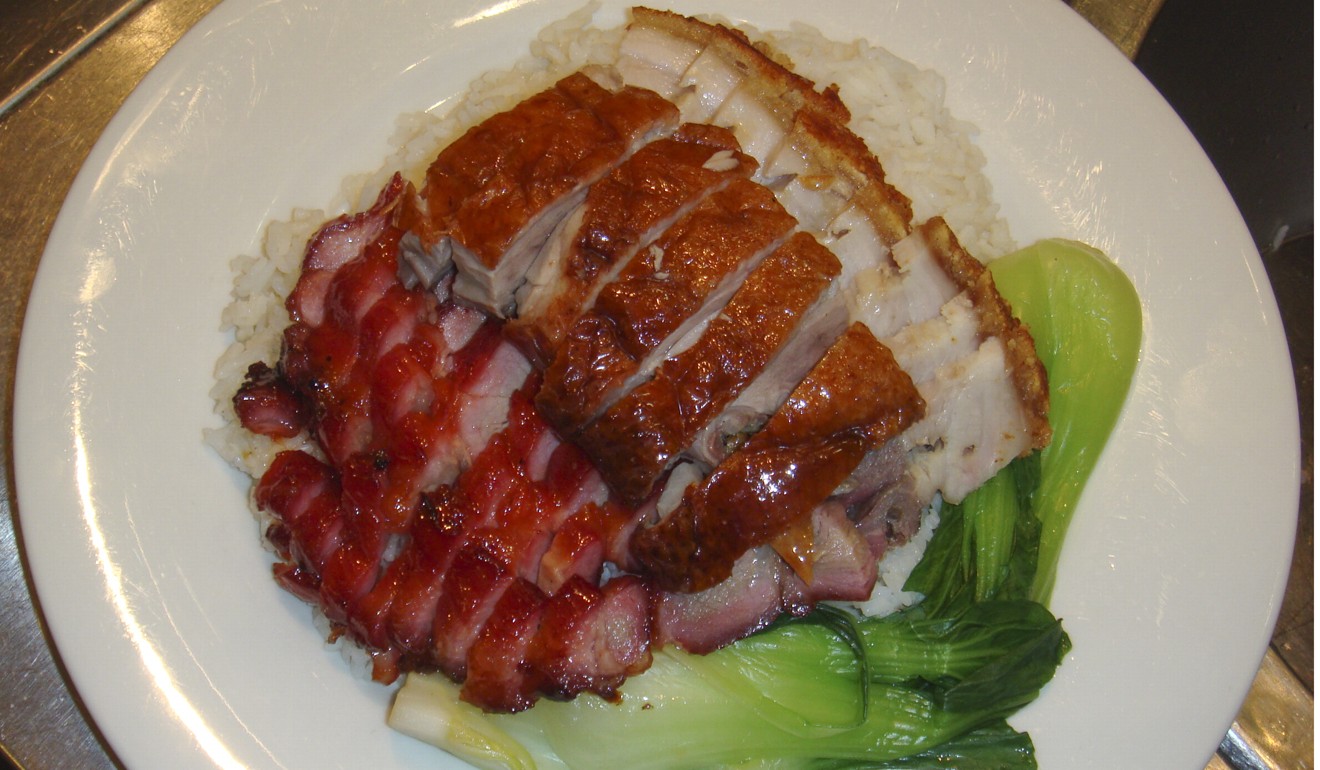
A recent crackdown by the UK Home Office has made obtaining visas for chefs from China difficult, but it has not affected Lee’s operation.
“I am really lucky to have my team,” he says. “I don’t have that visa headache that a lot of restaurateurs have these days.”
As far as cooking goes, Lee believes that suckling pig is one of the trickiest roast meats to master.
“You need to keep a close eye on them,” he says “You air dry them for 12 hours or so. We have a fan blowing to take the moisture out, then we roast them. The whole pig goes in over a real flame.
As people travel more, they are becoming curious and have an interest in understanding other cuisines. They are beginning to understand that there is a skill involved in creating Chinese roast meats. Roast meats are reaching a broader audience
“We pick a 13kg piglet because the size fits our oven. Any bigger and the snout is touching the flame – any smaller and the cooking time is harder to judge. It is a skilled and labour-intensive job.”
Wong agrees: “There is so much that can go wrong. You mustn’t let the skin pop; if air becomes trapped sometimes chefs pop the meat from inside the cavity of the animal to release the pressure, so the skin doesn’t split. If a hole appears, the chefs use a red-hot rod to seal it.”
Yung also believes one of the hardest roast meats to get right is crispy pork belly. “It requires a combination of many factors to perfect,” he says. “If the temperature is too high, the skin will blister, but if it is too low, the skin will not crisp at all. Every pig is different, too, so you have to learn to become in touch with the animal. It takes a lot of experience and a really good teacher for this to become instinctive.”
Lim says roast duck also requires a lot of skill to ensure that flavour is consistent.
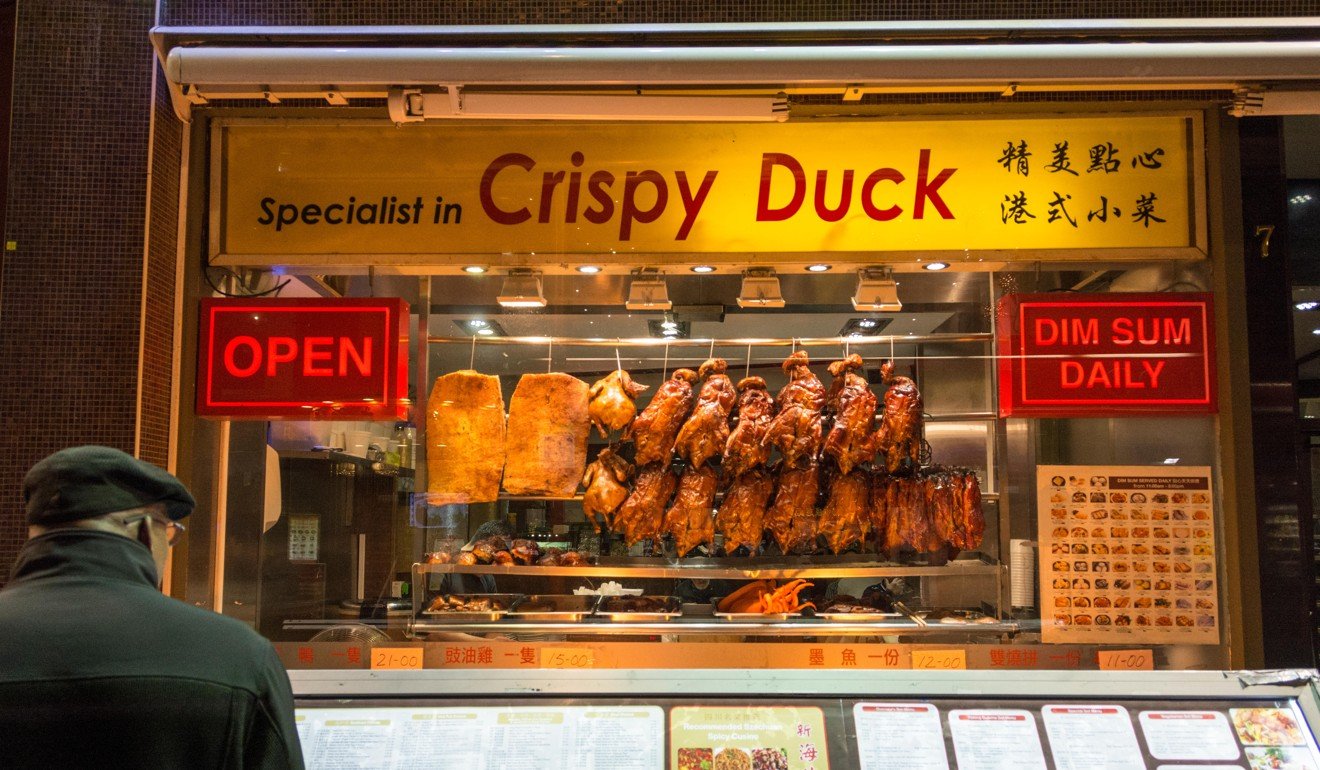
“Roast duck starts with the right size of duck, with a good amount of fat. The marinade needs to be fragrant and can be tasted throughout the meat. The skin should be an even colour all over.”
Awareness of Cantonese roast meats in the British capital has risen quietly over the last few years – something that Yung attributes both to rising numbers of Western tourists visiting Chinatown and to Westerners visiting China itself.
“As people travel more, they are becoming curious and have an interest in understanding other cuisines. They are beginning to understand that there is a skill involved in creating Chinese roast meats. Roast meats are reaching a broader audience,” he says.
Kwok sees their restaurant a little like a culinary embassy. “Siu mei remains one of the most popular types of food for everyday Hongkongers … we look forward to bringing this food out to the streets [in London] to make it available to all,” he says.